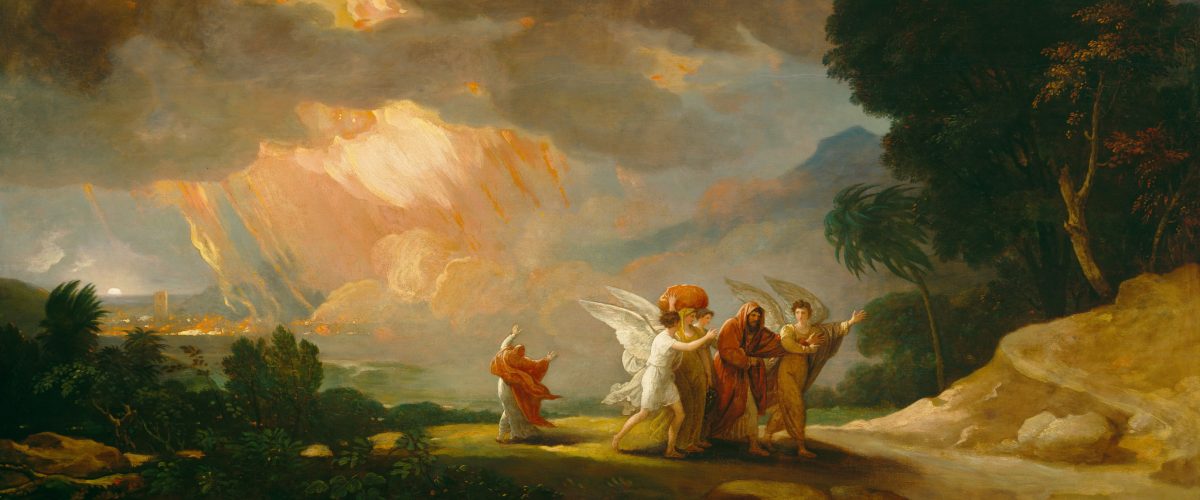Now that the Supreme Court has outlawed abortion, some politicians can’t wait to start the campaign to take away other rights, especially gay rights.
The ruling on abortion was not yet dry on the page before Justice Clarence Thomas voiced the call to arms against other rights he opposes. “In future cases, we should reconsider all of this court’s substantive due process precedents, including Griswold, Lawrence, and Obergefell,” Thomas wrote in his concurring opinion on the Mississippi abortion case. “Because any substantive due process decision is ‘demonstrably erroneous,’ … we have a duty to ‘correct the error’ established in those precedents.”

Rodney Kennedy
Griswold v. Connecticut was a landmark 1965 case in which the court ruled the use of contraception between two married individuals is a matter of privacy and constitutionally protected. Lawrence v. Texas in 2003 dealt with same-sex relations between consenting adults, and Obergefell v. Hodges treaded the same territory in 2015 to rule gay marriage as a protected right to privacy.
The battle joined in Congress
Thomas ignited the battle, which soon was joined by others. Sen. Ted Cruz argued the U.S. Supreme Court decision to legalize gay marriage was “clearly wrong” and “marriage was always an issue that was left to the states.”
When Democrats in the U.S. House of Representatives recently passed legislation to protect same-sex marriage, 157 Republicans voted against the bill. The bill now goes to the Senate, where only four Republicans have expressed support or openness to the bill: Susan Collins (Maine), Rob Portman (Ohio), Lisa Murkowski (Alaska) and Thom Tillis (North Carolina). The remaining Republican senators are dodging the question or remaining mostly silent —apart from Cruz.
Sen. Lindsey Graham (R-S.C.), meanwhile, said he supported the Defense of Marriage Act, the 1996 law that defined marriage as between a man and a woman. The House bill codifying protections for gay marriage would repeal DOMA. Sen. Marco Rubio (R-Fla.), who faces reelection this year, called the effort “a waste of time” and said it isn’t a priority amid high consumer prices. “But I know plenty of gay people in Florida that are pissed off about gas prices,” Rubio said.
On the Senate side, Rubio and Cruz echo the vitriol already spewed by some of their Republican colleagues in the House.
Rep. Lauren Boebert: “I think the federal government should not be involved in marriage. My marriage between my husband is really between me and God, not between me and the government. But this was absolutely unnecessary. They have attacked our institutions. They have weakened the nuclear family and undermined masculinity and even femininity.”
“Where does all this conservative hatred for gays originate? The answer: Sodom.”
Rep. Marjorie Taylor Greene: “No one is taking away gay marriage.” She then admitted she was voting against the protection of same-sex marriage because “I believe that marriage is a union made by God between a man and a woman.”
Rep. Jim Jordan: Democrats are trying to “intimidate the United States Supreme Court.”
Where does all this conservative hatred for gays originate? The answer: Sodom.
Revisiting Sodom
Conservative evangelicals never have stopped despising gay rights. They have continued to plot the overthrow of gay marriage. Whenever evangelical arguments against LGBTQ people become news again, there’s only one destination that matters — Sodom and Gomorrah.
So let us once again make the trek to Sodom to see how far-fetched this evangelical obsession really is.
Paying attention to the evidence, my conclusion is that God didn’t destroy Sodom because of the presence of gay men.The evidence shows that the “sin” of Sodom was not homosexuality.
There are two parts to this biblical story, and the first informs the second.
First, what the Bible shows us, as Rowan Williams makes clear, is not a God who bullies people, punishes people, but a God who gets his way by patiently struggling to make himself clear to us, to make God’s love real to us, especially when we don’t seem to care, or want to avoid God. And the Bible does this by telling stories from the human point of view, as if God needed to be persuaded to be faithful to his people.
In Genesis 18, Abraham argues with God because things are going badly in Sodom, and it seems God will give up and blast people into oblivion. The story shows us that Abraham argues with God until he has persuaded God to be merciful.
The writers of Genesis didn’t believe in a capricious, bad-tempered God who needed to be calmed down by sensible people. They show Abraham appealing to the deepest and most true thing about God as he prays. Abraham is arguing with God about what seems to be God’s plan to destroy the wicked city of Sodom. Surely, says Abraham, there must be some good people in Sodom. And if there are, “the judge of all the earth” must be fair to them; God can’t destroy the good with the bad: “far be it from you to do that” says Abraham. And God allows the argument to proceed, gradually reducing the number of good people needed to be in the city for God to spare it.
This is a story about a man who is discovering that God really is to be trusted to do right.
The second story about Sodom
Evangelicals focus instead on Genesis chapter 19, where Sodom and Gomorrah are destroyed — but not for the reason they say.
The preachers of the evangelical persuasion have been yelling at us that God wiped out Sodom because it was a city full of gays. When people are scared, they turn to hyperbole to scare other people. The numbers are always exaggerated: “hordes,” “mobs,” “caravans.” Preachers shout that the city is overrun with gays. During the battle over gay marriage, preachers claimed allowing gay marriage would increase the number of divorces in America.
“If God destroyed cities for being wicked, what city would still be in existence?”
If God destroyed cities for being wicked, what city would still be in existence? Don’t you think God’s patience would have long run out with Washington, D.C.? Or what about “Sin City” Las Vegas? But God has not destroyed any cities in America.
The image of God as an angry, destructive deity has plagued us all for too long. God needs a defense because God is a “gentler God” than the evangelicals picture. It is high time for Christian pastors to offer an alternative to the bad reputation evangelicals have given God.
Sodom is not a story about God’s destructiveness. The story is about how we humans would act. We would get angry, and if we had the power, we would wipe out cities, wouldn’t we? Some Americans are so angry today that if they had the power, they might destroy democracy. Jan. 6 gave us a chilling picture of that possibility.
But let’s go back to the Bible and look carefully at the story and see if there is same-sex activity taking place. The prosecution’s case rests entirely on one phrase in Genesis 19:5 — “that we may know them.”
This is not sexual activity; it is abuse. The men of Sodom want to exert their power over the two angels. One way they did this in ancient times was through the rape of men captured or taken prisoner. What happens here seems like an equivalent of a male spitting contest. Testosterone and ignorance mixed in a toxic brew.
This is heterosexual rage and power. This is lording it over men who were now deemed to be weaker.
Acting like Sodomites today
Such men carry out the same act in symbolic ways today by preaching against gays and denying gays human rights. And they are gathering their forces now for an attempt to undo gay marriage through the Supreme Court.
Historian Thomas Connelly speaks of the Southern “male” mind, but now that the entire nation “speaks Southern,” this Southern male image serves as poster child for all American maleness.
He writes: “There are the dark passions of insecurity, seen in the image of the proverbial Good Ol’ Boy and his music. …. There is the boastful talk of sex, the display of male bravado in country music, the trappings of Browning shotguns, pickup trucks, and the enthusiasm for Southern football. The long memory of the war is everywhere in the culture and the music: it shows in the tones of violence and suffering, in the evangelical appeals to Jesus in shabby Alabama churches, in the sense of alienation in being at once Southern and American.”
“Sodom is just one in a line of Southern cities filled with outraged, angry, boasting, bullying, bragging men.”
In other words, Sodom is just one in a line of Southern cities filled with outraged, angry, boasting, bullying, bragging men.
Lack of hospitality
There is evidence of another reason for the judgment of Sodom from the Old Testament prophet Ezekiel: “This was the guilt of Sodom: she had pride, excess of food, and prosperous ease but did not aid the poor and needy.”
Sodom refused to show hospitality. The men of Sodom should have received the two angels as special guests and provided them with food, drink and shelter. Instead, they formed a mob and tried to rape them. Lack of hospitality is the source of Sodom’s evil.
Lot, on the other hand, takes hospitality to the excess. He offers up his own daughters to protect the two men of God because the law of hospitality was sacred. This really bothers me, because I can’t imagine a father turning his daughters over to a mob. Thank God it didn’t happen. But then again, we worship a God who gave his son over to crucifixion.
Do you see how messed up this story has become in the hands of small-minded, judgmental preachers who are out to spread hatred everywhere? This is not about God’s wrath; it is about the lack of hospitality that exists in our world.
“Do you see how messed up this story has become in the hands of small-minded, judgmental preachers who are out to spread hatred everywhere?”
The story of Sodom never has been about LGBTQ persons but always about hospitality. It would be wrong of us to judge the city of Sodom on the charge of homosexual activity.
A story about intercession
In addition, this story is about God’s mercy and faithfulness. It is about Abraham and intercession.
“Intercession” is a big word in Christian faith, among people who still believe in prayer. Intercession. Hard bargaining. A fierce argument. A matter of life and death. If enough holy people get together and start praying about something with enough passion and determination, there’s no telling what might happen. Those prayers might make possible a crack in the door where God might be able to accomplish something previously thought impossible.
Many preachers will make every story about sex. When preachers have been “masters” of the house, they have kept gays in the closet. They have expelled single women who became pregnant. They have fought to control what happens in the bedroom. When transgender persons finally acquired some rights, they obsessed about the bathroom.
Any psychologist worth her degree would have an easy time dissecting the evangelical obsession with sex. There’s a pornographic eroticism to the preaching against homosexuality in congregations filled with mostly heterosexuals with questionable sexual morals.
“Any psychologist worth her degree would have an easy time dissecting the evangelical obsession with sex.”
The biblical story calls us to look at Abraham standing before God pleading for the safety of Sodom. Abraham argues with God — a defense attorney at the bar of justice, pleading for a city. There’s no more righteous practice than intercession. A people warped by judgmentalism have no room for intercession.
This is the part of the story I love. What a liberating scene. One man arguing with God for the life of a city.
I have almost nothing in common with the people who want God’s wrath to fall on cities. I can’t tell you how much utter disgust I had when Pat Robertson said God caused Hurricane Katrina to destroy New Orleans because of gays and because the city was wicked. That is my city. I went to seminary in that city. There are thousands of good people in New Orleans. It’s the most interesting city in the nation. God would not destroy all that spice, all that culture, and certainly would not destroy jazz. And besides, this is the city where the saints go marching in.
Sadly, some Christians like the idea of God’s wrath. Robertson was not alone in his judgment. People who like the story of Sodom’s destruction are like people standing outside the state prison when a convicted murderer is being executed.
Will Campbell relates a story of attending a vigil outside a Florida prison where a single one of God’s children was about to die inside the prison. A group of young men and women nearby cheered lustily as the electrocution happened, he wrote. “That’s it! That’s Old Sparky!” Then he watched as the lights in the prison walls blinked from a power surge. “Fry the bastard! Bring on the barbeque sauce!” Their callous chant was sickening, Campbell said, and the celebration of death was nauseating.
Evangelicals in our midst never pay much attention to Abraham’s intercession. They go right to the destruction of Sodom. Robert Bork wrote a book, Slouching Toward Gomorrah, with the theme that America was becoming Sodom and on the brink of destruction. James Dobson says he is convinced America is sliding toward Sodom. Robert Jeffress says God destroyed Sodom with fire and brimstone from heaven and “we cannot condone what God has condemned.”
There’s a great gulf fixed between those who wish to bring down fire on cities and those who have a fiery determination to save cities.
Rodney W. Kennedy currently serves as interim pastor of Emmanuel Freiden Federated Church in Schenectady, N.Y., and as preaching instructor Palmer Theological Seminary. He is the author of nine books, including the newly released The Immaculate Mistake, about how evangelical Christians gave birth to Donald Trump.
Related articles:
The sins of Sodom (and Gibeah): The LGBT issue, part 9 | Opinion by David Gushee
How the SBC employs the Sodom Strategy to avoid talking about real sexual abuse | Analysis by Amy Hayes


